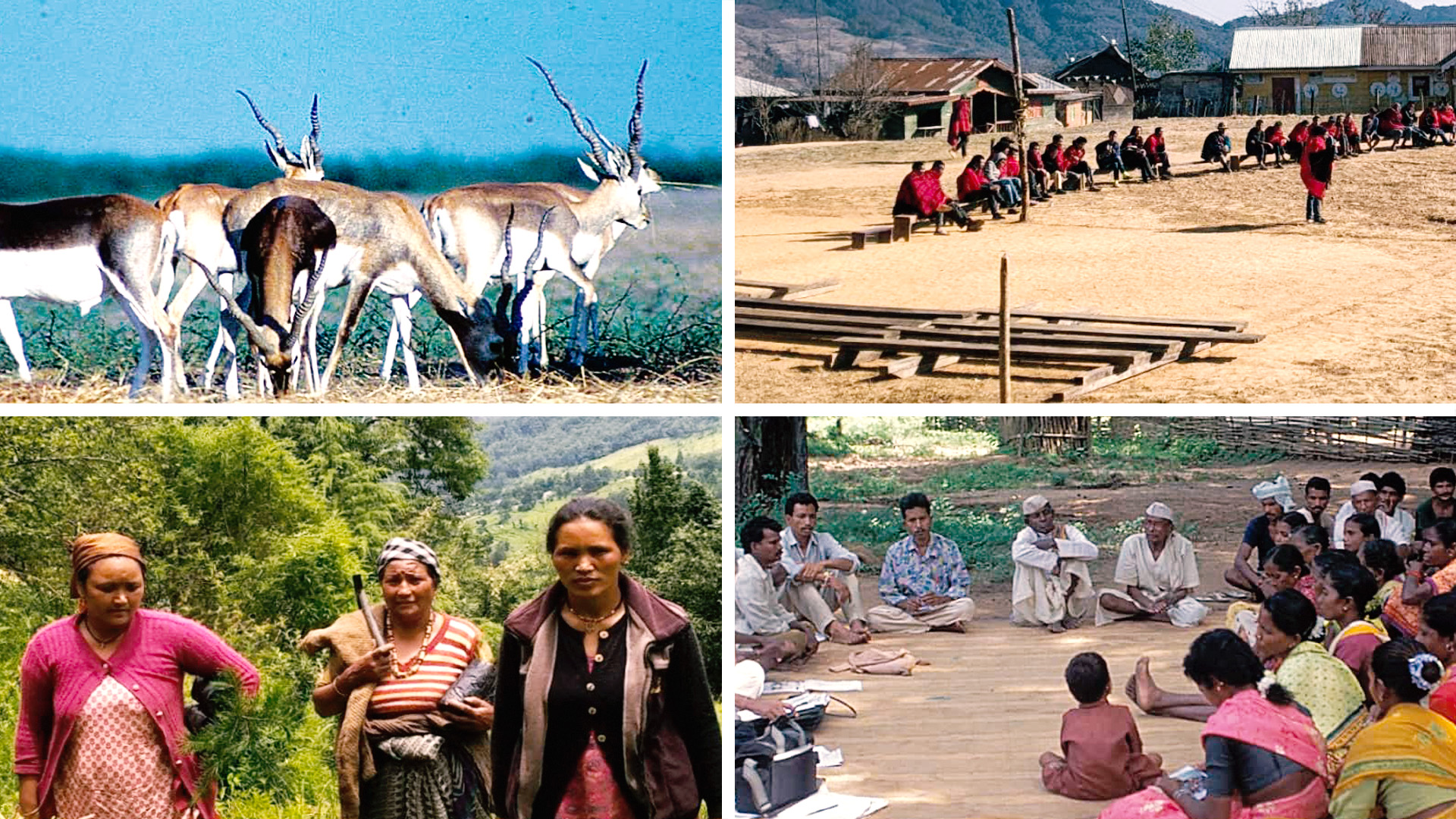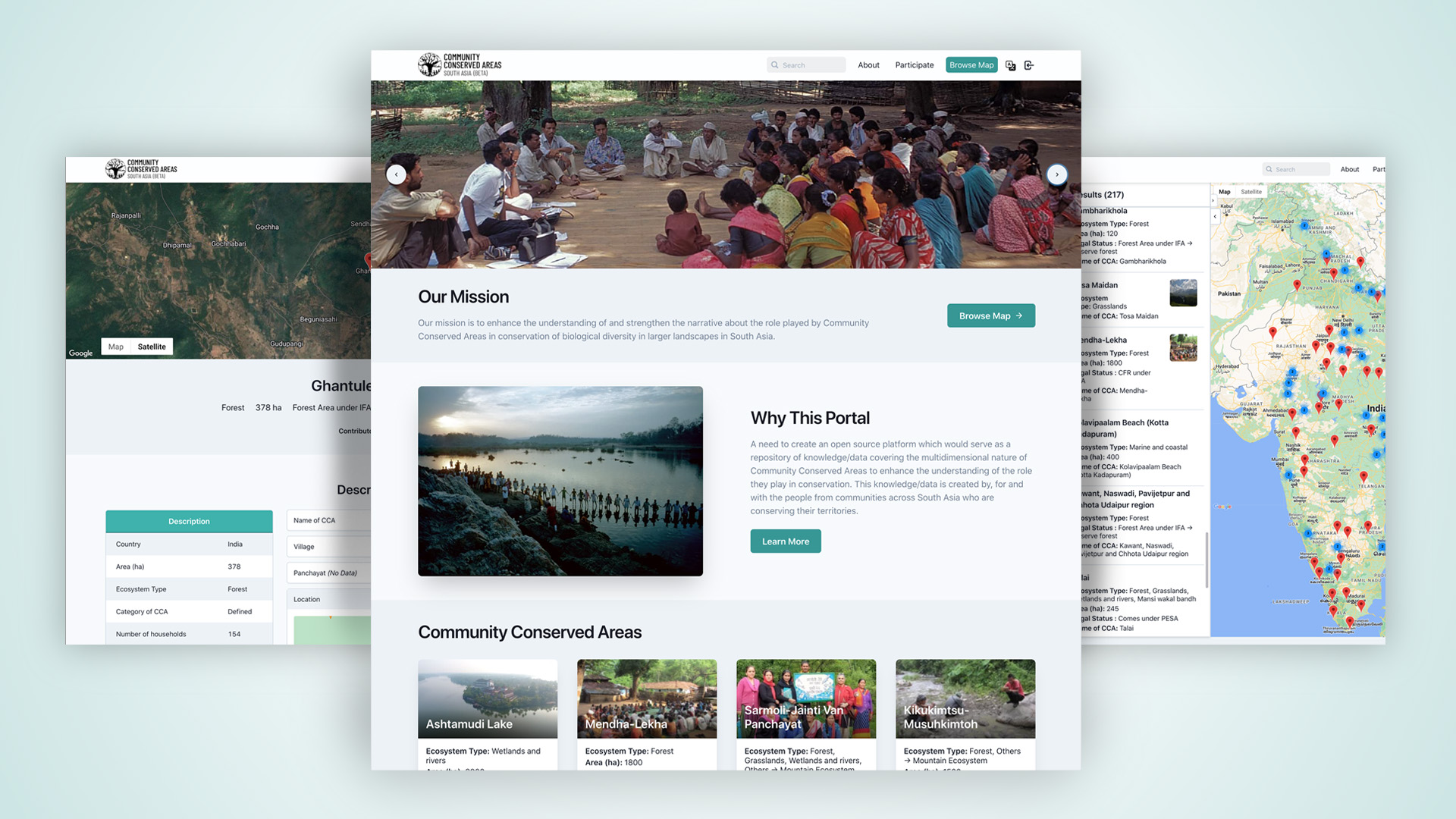The portal will be later expanded to all other South Asian countries. On the portal, communities can share data, case studies, multimedia content, and maps of the Community Conserved Areas (CCAs) and share their experience documenting, sustaining, and defending these territories of life
First published on 05/30/2022, and last updated on 06/02/2022
By Rudrath Avinashi
Kalpavriksh Environmental Action Group (ICCA Consortium Member)
About five percent of the geographical area of India is designated as protected areas to conserve and protect biological diversity and habitats. On the other hand, a larger area is under the governance and stewardship of communities. Indigenous Peoples and local communities actively conserve and manage these Community Conserved Areas (CCAs) that maintain biocultural diversity and provide sustainable subsistence, sustenance, and livelihoods.
Like India, the broader South Asia is a bio-culturally diverse region, and the characteristics of the communities’ relationships with their territories, lands, and water are diverse too. Still, there was no accessible common platform to share information and knowledge that suited the needs of Indigenous Peoples and local communities in the region. The recently launched web portal www.communityconservedareas.org is designed to fill that gap.
The portal is currently sharing data and information on bio-cultural systems and conservation practices of communities in India but will be later expanded to all other South Asian countries. It is meant to serve as a database for community-led conservation initiatives where the focus is on documenting CCAs in all their diversity and extent. The portal is also helpful to communities for learning-sharing with their peers and understanding what mechanisms can be applied in their context.

The story behind
Communities have often been isolated when threatened by external pressures in the past. So, some of the main objectives of the portal are to provide opportunities for the communities to connect with more extensive networks and communications with other CCAs. The website also offers greater visibility for community-led actions in conservation and advocacy at national and global levels.
The partners behind the CCA website include Kalpavriksh (ICCA Consortium Member), ICCA Consortium’s regional coordinator for the South Asia region. Kalpavriksh is leading the design, coordination, and management activities for the development and maintenance of the website. Seva Mandir contributed to the design and piloted the field testing with the communities about the accessibility and usability of the website and has been contributing to management. The technological partner is Strand Life Sciences.
Other partners such as Metastring foundation, CECFEE, Paul Hamlyn Foundation, The Nature Conservancy – India, and the ICCA Consortium have provided the website’s much-needed financial and advisory support.
There have also been numerous individuals and institutions who have contributed to the portal with their advice and support. The World Conservation Monitoring Center (WCMC) team shared their experiences developing the ICCA Registry. Several individuals and organizations in India met at a national level meeting to discuss the issues related to Free, Prior and Informed Consent (FPIC), privacy, ownership, and verification of data, and other topics that contributed to the development of the portal.
After that meeting in India, an advisory committee was set up to guide the process and engage with critical issues concerning the portal. The team also held a meeting with ICCA Consortium members from Indonesia, Spain, and Finland who work on documentation and mapping of ICCAs.
Open for all
The portal is an open-source, non-commercial, and participatory platform where any individual, community, or organization can register and contribute. Their data would appear on an interactive map, and other ICCAs spread across South Asia. All the data on the platform is licensed under Creative Commons licenses.
The data available on the portal is collected through various ways — community self-documentation, data available through public sources, and collaborations with local organizations working on the ground.
This data includes information on the physical area and type of ecosystem of the CCA, its governance and management, the people associated with it, the ecological and social impacts of the initiative, and the threats faced by the CCA, among other things.
The team presented the web portal at the 2nd Asia Parks Congress in Sabah, Malaysia, in May 2022.
